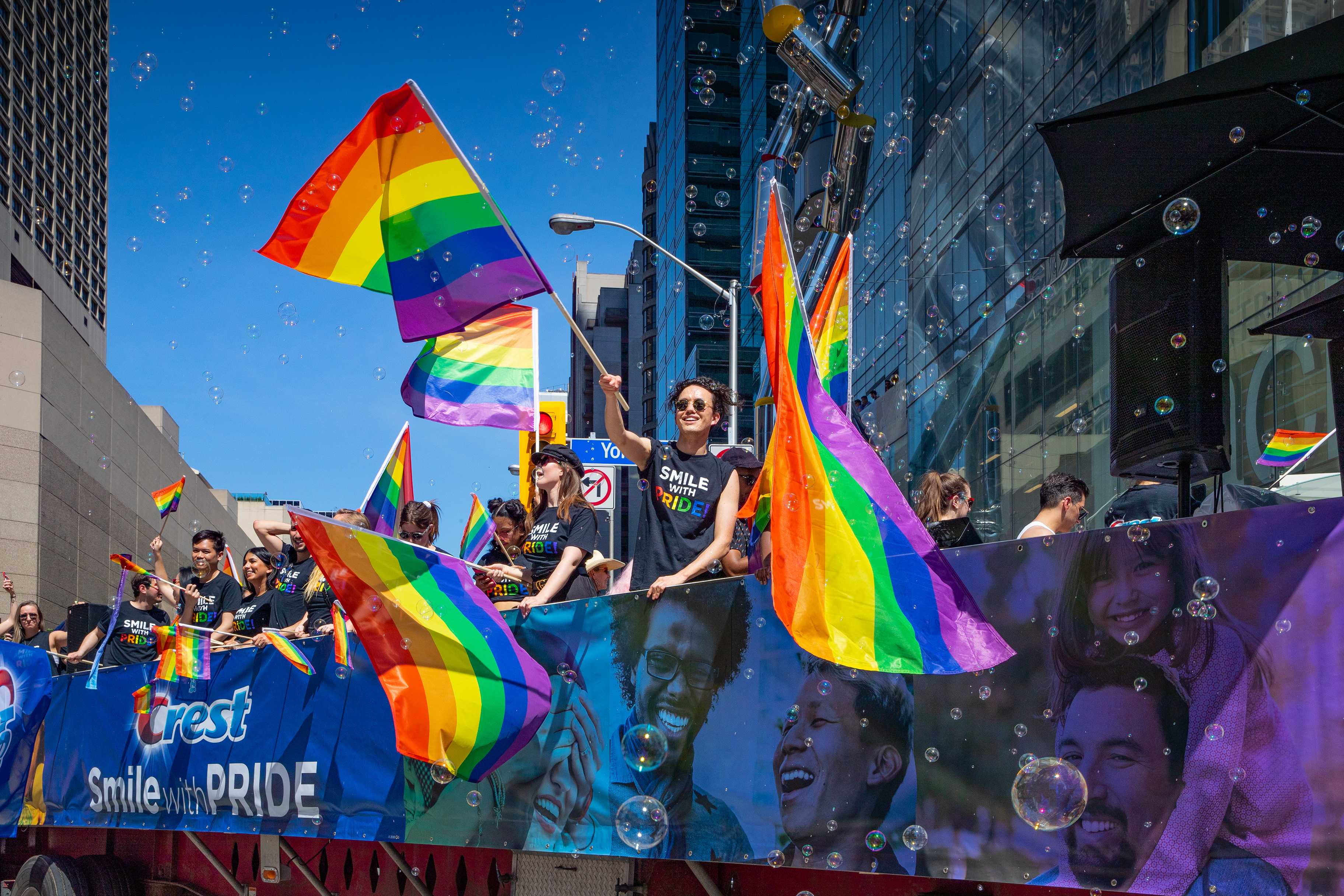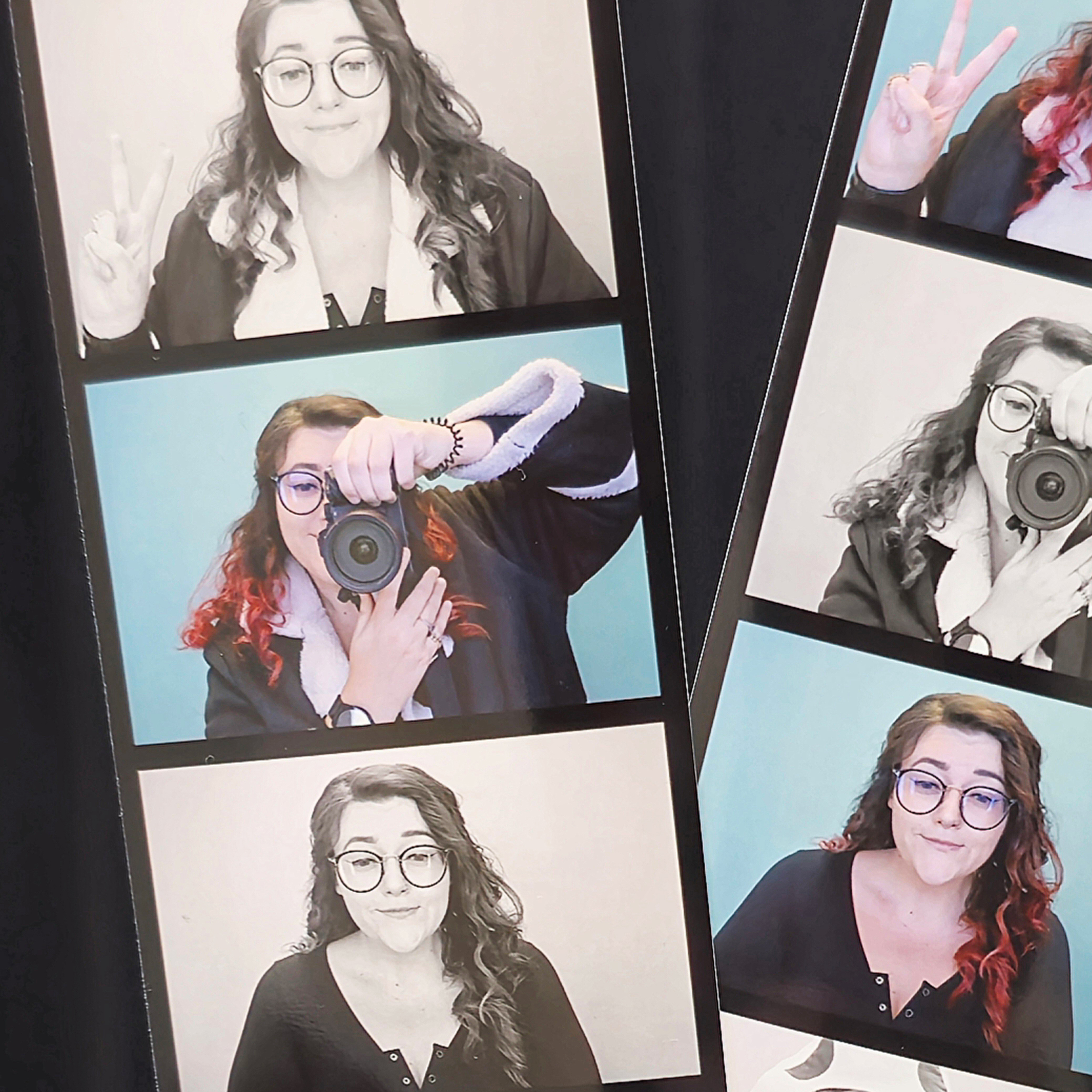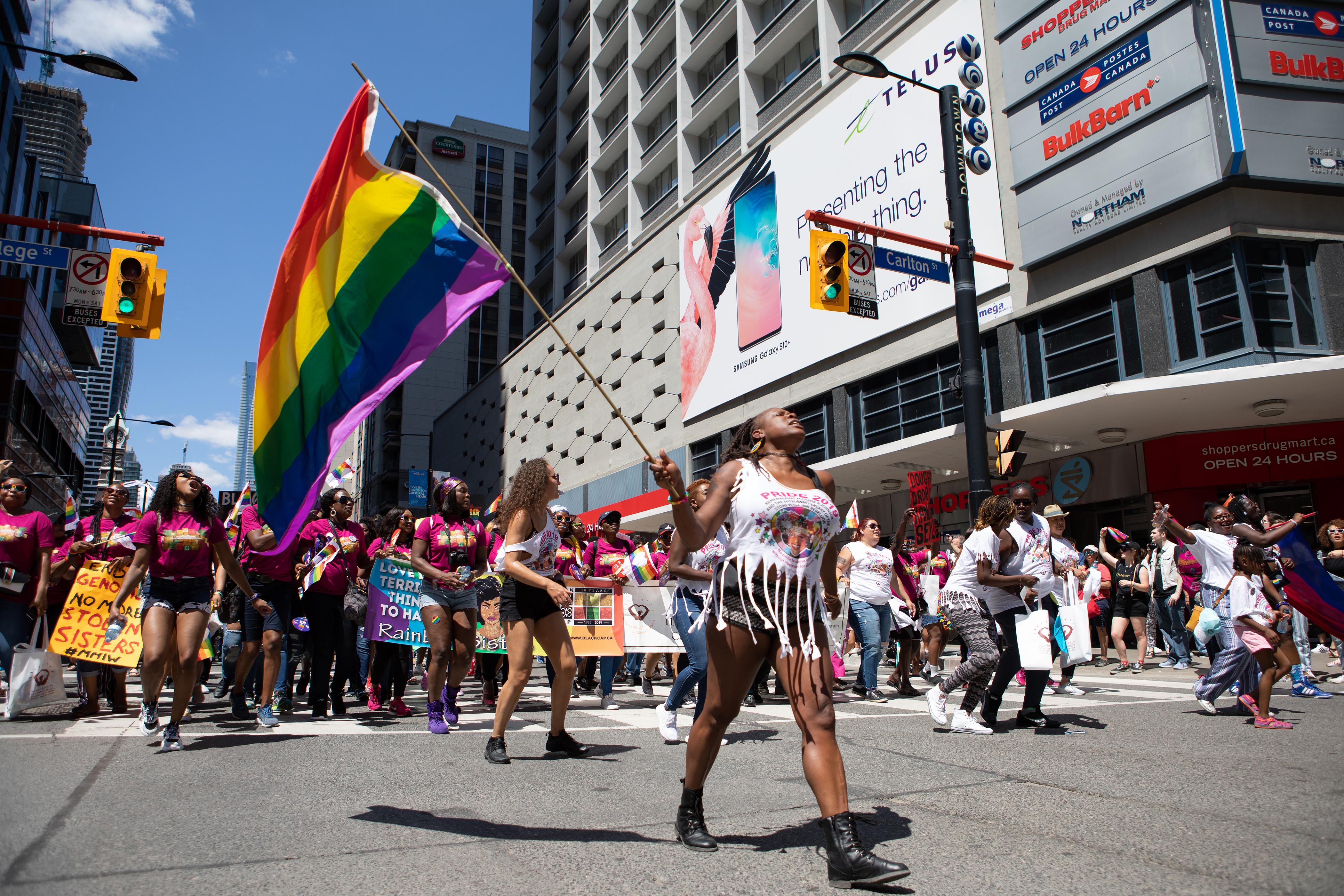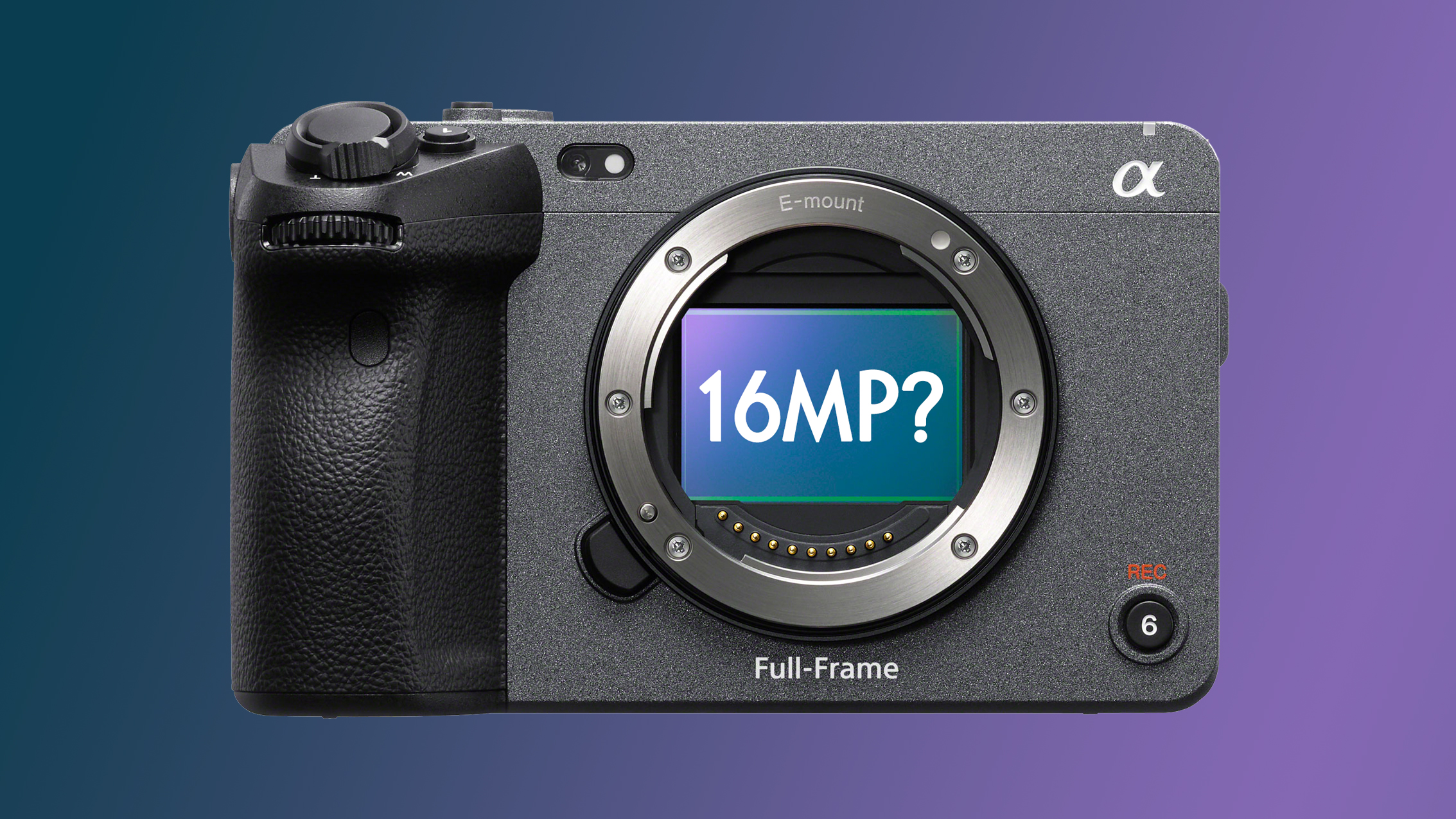Should photographers be allowed to take photos at Pride marches and events?
Attendees of Toronto Pride were not happy after seeing its arguably hostile photography and film release policy notices

The best camera deals, reviews, product advice, and unmissable photography news, direct to your inbox!
You are now subscribed
Your newsletter sign-up was successful
The Canadian city of Toronto celebrated its annual Pride 2022 event on 26 June after a two year hiatus courtesy of the Covid-19 pandemic. Thousands of excited attendees marched in the parade and celebrated Pride to honor the local and global LGBTQIA+ communities.
Toronto Pride especially is recognized as being a safe space and one of the largest attended and organized gay pride festivals in the world. This year, a strict media policy was advertised in a not-so-safe and slightly daunting way to remind attendees that they are waiving their consent to be filmed and photographed.
• This is what contemporary queer photography looks like in 2022
Admittedly, this policy is a tricky one from all angles. Usually when attending large events, especially ones that are outdoors or requiring the purchase of a ticket, it's common for there to be some sort of fine print in the ticket terms and conditions (that pretty much nobody reads) suggesting that by attending or purchasing a ticket to said event, or simply by showing up, you are therefore agreeing to be filmed for promotional or otherwise media-related purposes.
Sometimes this will include situations where you're photographed as part of a much larger crowd at a parade march, gig or festival, and might be harder to identify. This also happens very commonly at nightclubs and events that employ their own in-house photographer, and almost all indoor and outdoor events that the host and promoter may want advertorial images for to curate an online gallery.
.@PrideToronto in what universe is this [your] photo/video policy consistent with goals of trans and queer liberation? because as a physics professor who researches quantum spacetime, i can assure that it isn't *this* universe. 🙄🌈 pic.twitter.com/mNvN6JyKX6June 25, 2022
Whether or not the Toronto Pride filming notice is morally ethical regarding the nature of a Pride event is again, tricky, when the whole premise of the event and parade is for celebrating queer liberation, freedom and equality. I wholeheartedly understand the concerns and shock of those who saw the daunting and intense signage displayed at the Pride Parade... but is it as sinister as it's made to seem?
After having an extensive and thorough look on the official Toronto Pride website, I could not find any policy or terms and conditions (and believe me they have plenty!) that specify any photo restrictions at the event or implications that attendees are to be filmed and photographed. They do however have a section on 'Marketing and Logo Use' but that's the most relevant thing I could find. They do also have a Privacy Policy but this is mainly in reference to web users and personal data processing.
The best camera deals, reviews, product advice, and unmissable photography news, direct to your inbox!
So, unless it is specified anywhere on the ticket or via hidden terms and conditions on the third-party site when purchasing tickets, are Toronto Pride in any position to be revoking the consent of its attendees? Quick disclaimer: I'm not a lawyer by any means and not based in the States, and I'm in no position to make legal accusations or assumptions on image usage and consent.
With that said, usually in most instances it is common courtesy for a photographer (amateur or not) to introduce themselves and ask before taking a photo of an individual, or at least show them the image afterwards to either obtain consent or delete it. Understandably, this can be difficult to do and not always possible when shooting images of a larger crowd or space that contains multiple people and faces.
Street and event photography has always been a hard area to police, as aside from obtaining an individual's consent where possible, there is no crime committed by practicing street photography. Though, it is worth noting that some countries and locations have their own set of rules and policies where they do not permit this.
The issue being brought forward here is that attendees of Pride should not be made to feel that their consent is being taken from them, especially given the nature of the event, and that an individual could possibly be "outed" unintentionally if an image of them attending the event is published without their knowledge or approval.
You don’t get to threaten people who LIVE HERE if they don’t want their photos used without consent they can’t be on the street. Pride, of all orgs, should know better than to presume consent for people’s images being shared. Also, you don’t get to assume consent of minors. pic.twitter.com/yqTCP7h0CvJune 26, 2022
In addition, minors and their consent is a whole other branch of this debate. With one of the warning signs at Toronto Pride this year supposedly stating that "if you are under eighteen years of age, you represent that you have obtained your parent/guardian's consent to enter [the] area and be bound by the terms set forth herein."
Another aspect of this debate involves amateur photographers who choose to attend events such as Pride and take photographs for either portfolio purposes or on assignment for other media publications. These photographers likely don't mean any harm by being at pride and capturing street portraits, but it does infringe on consent if they aren't carrying out the best practices.
On the other hand, many Pride attendees will undoubtedly have their smartphone cameras with them and be capturing footage and images throughout the day; are they covered by the same protection or held accountable the same way as photographers and media at the event?
There are clearly many factors to consider here, including the harsh and sinister language choices such as attendees relinquishing consent "for eternity" and warnings such as "Do not enter the area" with connotations of danger. Attendees rightfully upset by the signage clearly do not feel that the safe-space event was very safe at all. The message to photographers is please be considerate when photographing strangers at events, and always obtain consent.
Read more:
Best books on portrait photography
Best camera for portraits
Best lens for portraits
This is not an opinion piece, this is fact – gender & photography edition
Legends of Drag photo exhibition takes this glamorous art form mainstream

Beth kicked off her journalistic career as a staff writer here at Digital Camera World, but has since moved over to our sister site Creative Bloq, where she covers all things tech, gaming, photography, and 3D printing. With a degree in Music Journalism and a Master's degree in Photography, Beth knows a thing or two about cameras – and you'll most likely find her photographing local gigs under the alias Bethshootsbands. She also dabbles in cosplay photography, bringing comic book fantasies to life, and uses a Canon 5DS and Sony A7III as her go-to setup.

